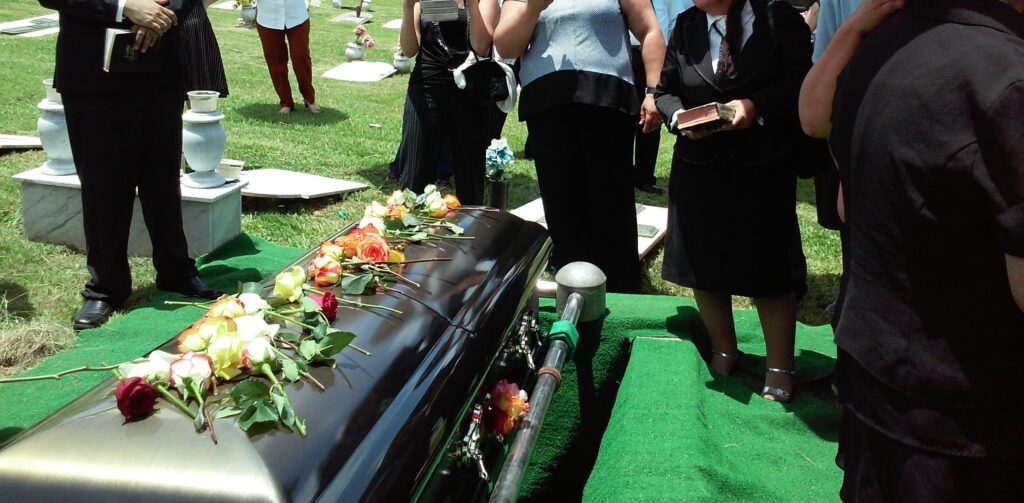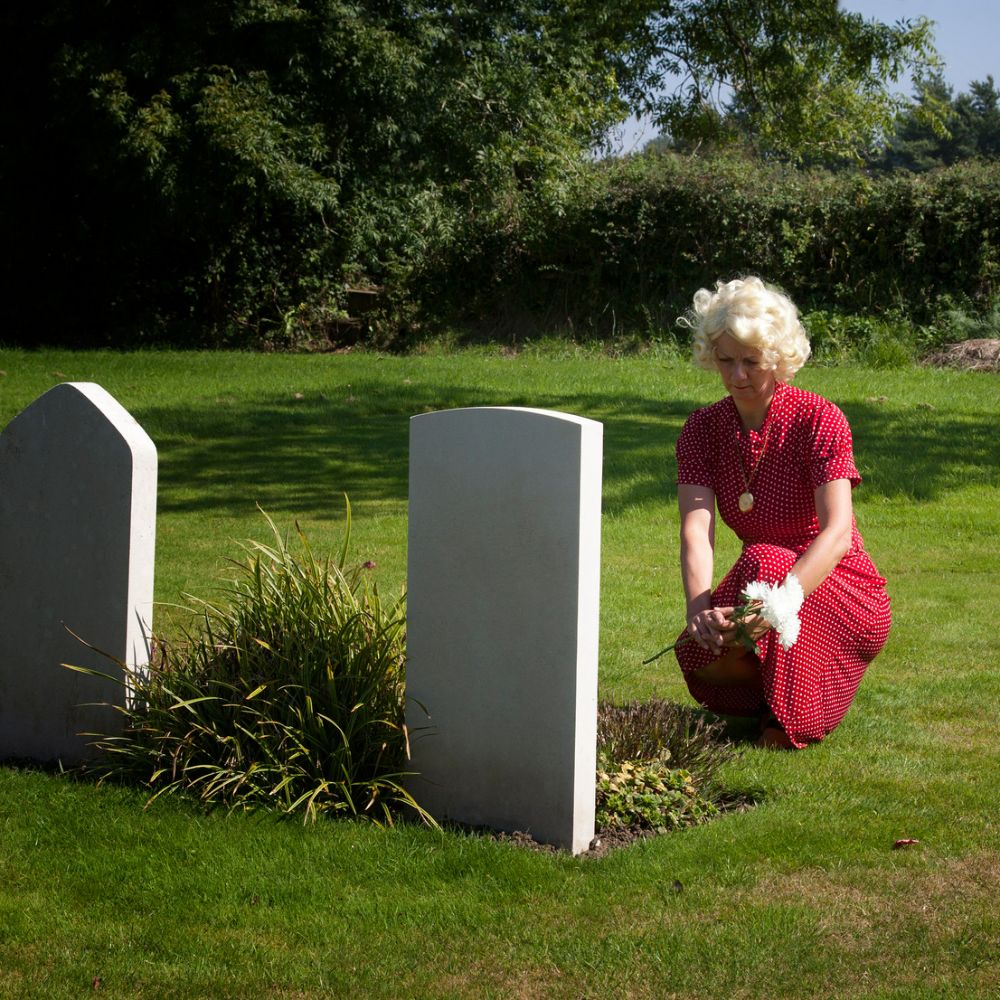All Articles & Guides / Funerals & Celebration of Life / Casket vs. Coffin
Casket vs. Coffin
What’s the Difference Between a Coffin and Casket?
If you haven’t had to plan a funeral before, you may think the terms "coffin" and "casket" are interchangeable since both serve as burial containers for the departed. However, there are a couple of differences between the two and the easiest way to tell them apart is through their appearance.

Caskets
Caskets are specially designed to hold the remains of the departed, and most can be used for either a burial or cremation. They are rectangular, with four sides, and are typically made of wood or metal and then lined with a cloth material. Casket lids have hinges that allow them to be opened and closed. Caskets are typically opened halfway during viewings and can be decorated with funeral flowers.
Coffins
On the other hand, coffins are tapered to the shape of a body and are wider at the top with a removable lid. They also have six sides instead of four. Most of the time coffins are made of wood with a cloth interior and they are typically harder to transport since they don’t come with rails, but with decorative handles on both sides.
Casket vs Coffin Price Considerations
From appearance alone, you can gather that there will be a difference in price points of a casket vs coffin. Because of their tapered shape, coffins require less material, making them a more affordable option. The most basic coffin is usually around $200.
How Much Do Caskets Cost?
Caskets can average between $2,000-$5,000 for wood-based models but can easily reach $10,000 if you’re opting for an intricate, premium model made of rare wood. The quality and craftsmanship that is involved in creating a wood casket is also part of why they’re more expensive. Here are the average costs for a traditional casket depending on the construction material:
- Pine Casket – $500-$1,750
- Plywood Casket - $700-$1,500
- Veneered Casket - $800-$1,500
- Steel, copper, bronze, or stainless steel - $1,200-$5,000
- Walnut, mahogany, red cedar wood - $3,000-$6,000

Wood vs Metal Caskets
Wooden caskets are usually constructed of woods like oak, maple, pine, or mahogany. Wood rarity and prices can affect the ultimate cost of a casket. If the wood has been treated, stained, or sealed, chemicals can leach into the ground, making them an environmentally unfriendly option. Wooden caskets are also susceptible to moisture and insects, so body decay often occurs at a quicker rate.
Research shows that decomposition of an embalmed body is slower in a metal casket, taking around 15 years. These caskets don’t decompose underground and are usually protected from rust. The gauge, or thickness, of the metal will determine the price, along with any finishes that can be applied, such as gold plating. Metal caskets usually come with a rubber gasket that wraps around the lid to protect and preserve the deceased’s body.
Shopping for Burial Containers
A common misconception people have is that they need to purchase a casket or coffin from the funeral home where the departed will be buried. According to the Funeral Rule, a funeral home MUST honor any burial container provided for the deceased. They must provide a general price list of their own products and are not allowed to refuse a container from a third-party or charge handling fees if you choose not to purchase theirs.
An affordable alternative for those that wish to be cremated is a cremation urn. Some caskets are used for a funeral as well as a container for cremation, however, the most basic cremation container can simply be made of cardboard. With the rising costs of funerals, purchasing an expensive casket might not be an affordable option, especially if the deceased wishes to be cremated.
While coffins and caskets all have a similar appearance, there are a huge variety of urns that can be personalized to commemorate the passions, hobbies, and qualities of the departed. Ashes can be shared among family members in keepsake urns or cremation jewelry instead of relying on one burial spot.
Other options include having a scattering ashes ceremony, burial at sea, or creating a garden memorial. Saying goodbye to a loved one is difficult enough without having the financial burden of burial containers and funeral costs.
Looking for a memorial product? Browse our customizable items to help commemorate a loved one and honor their memory.
Related Content





